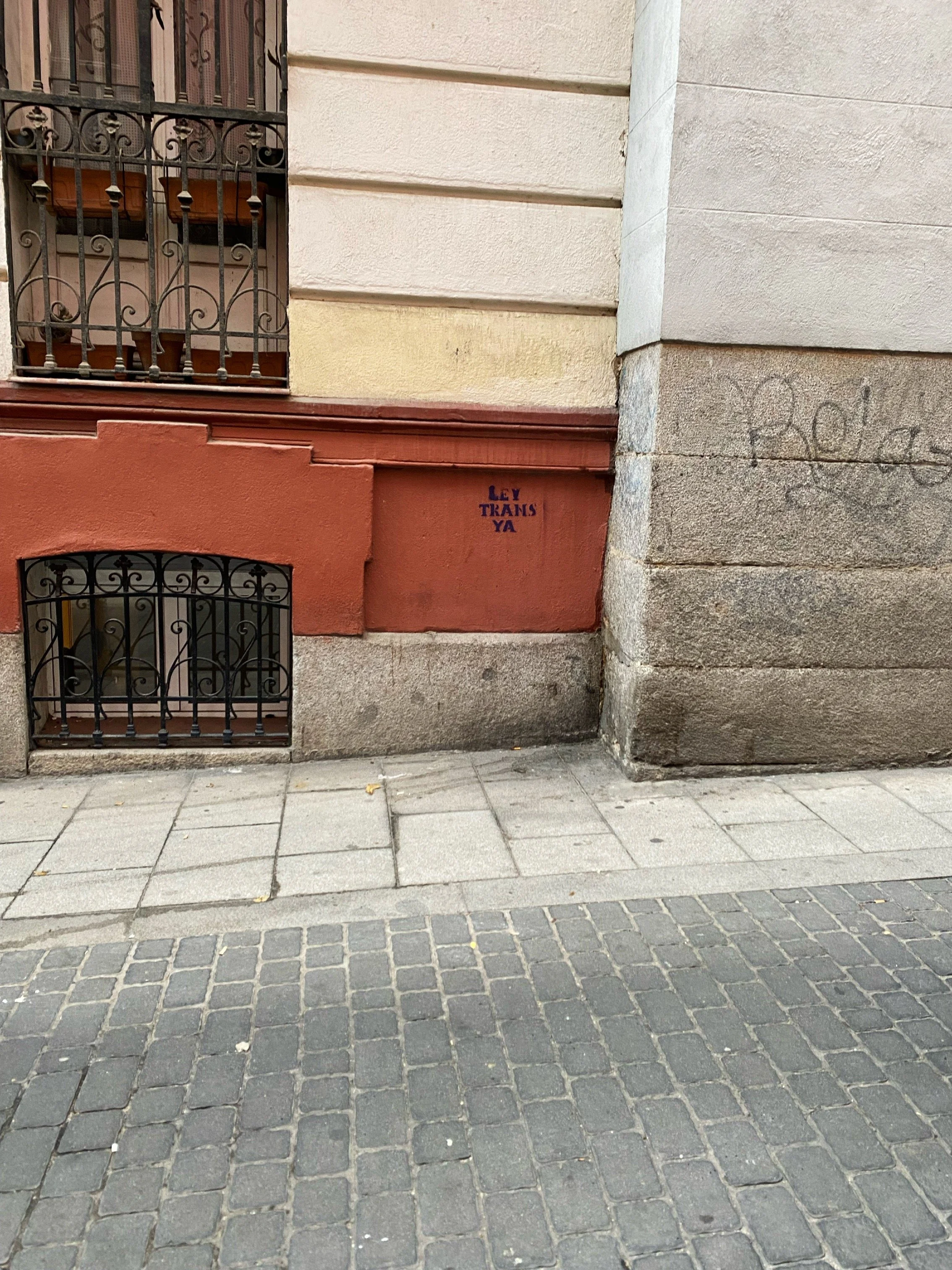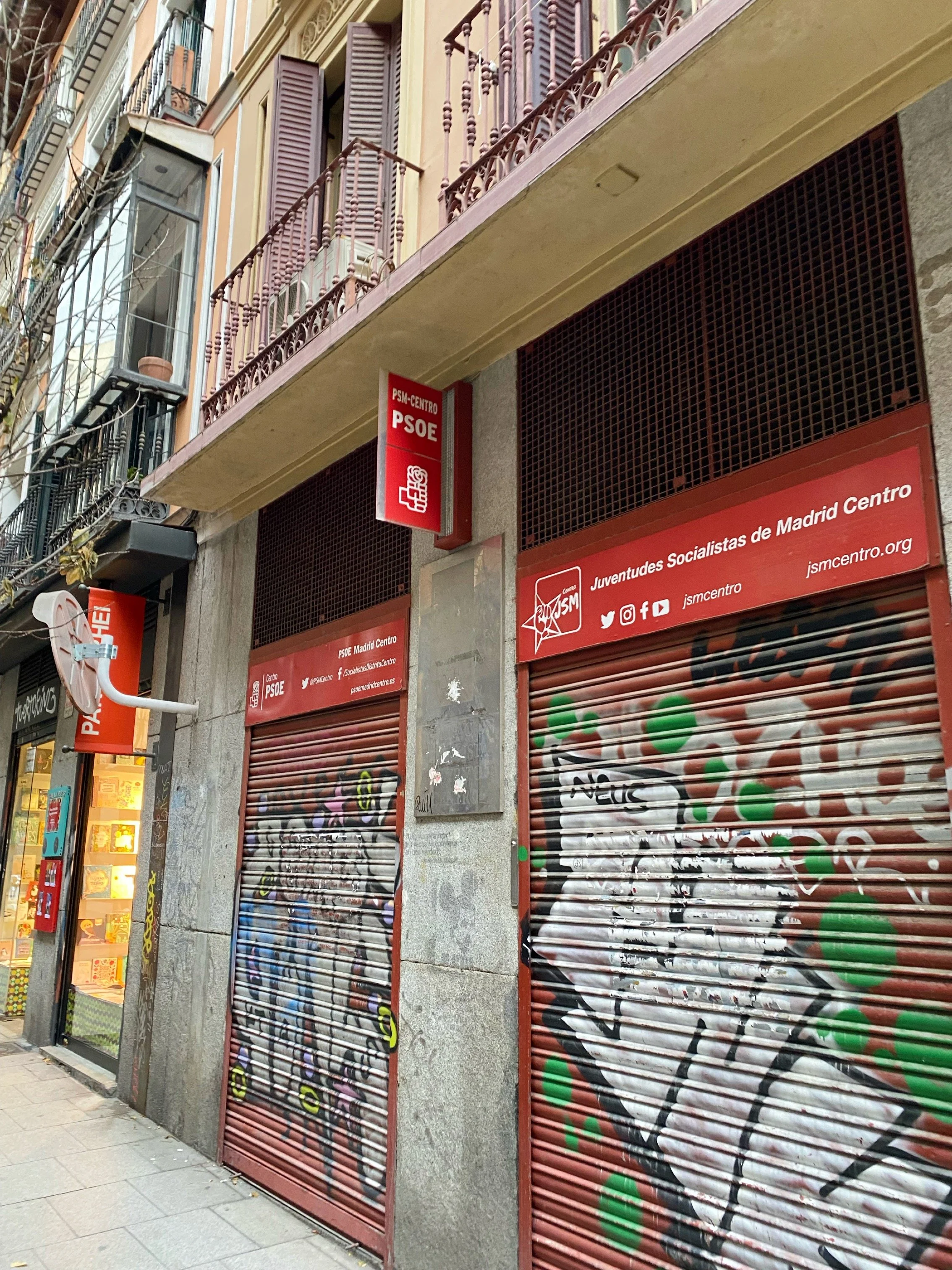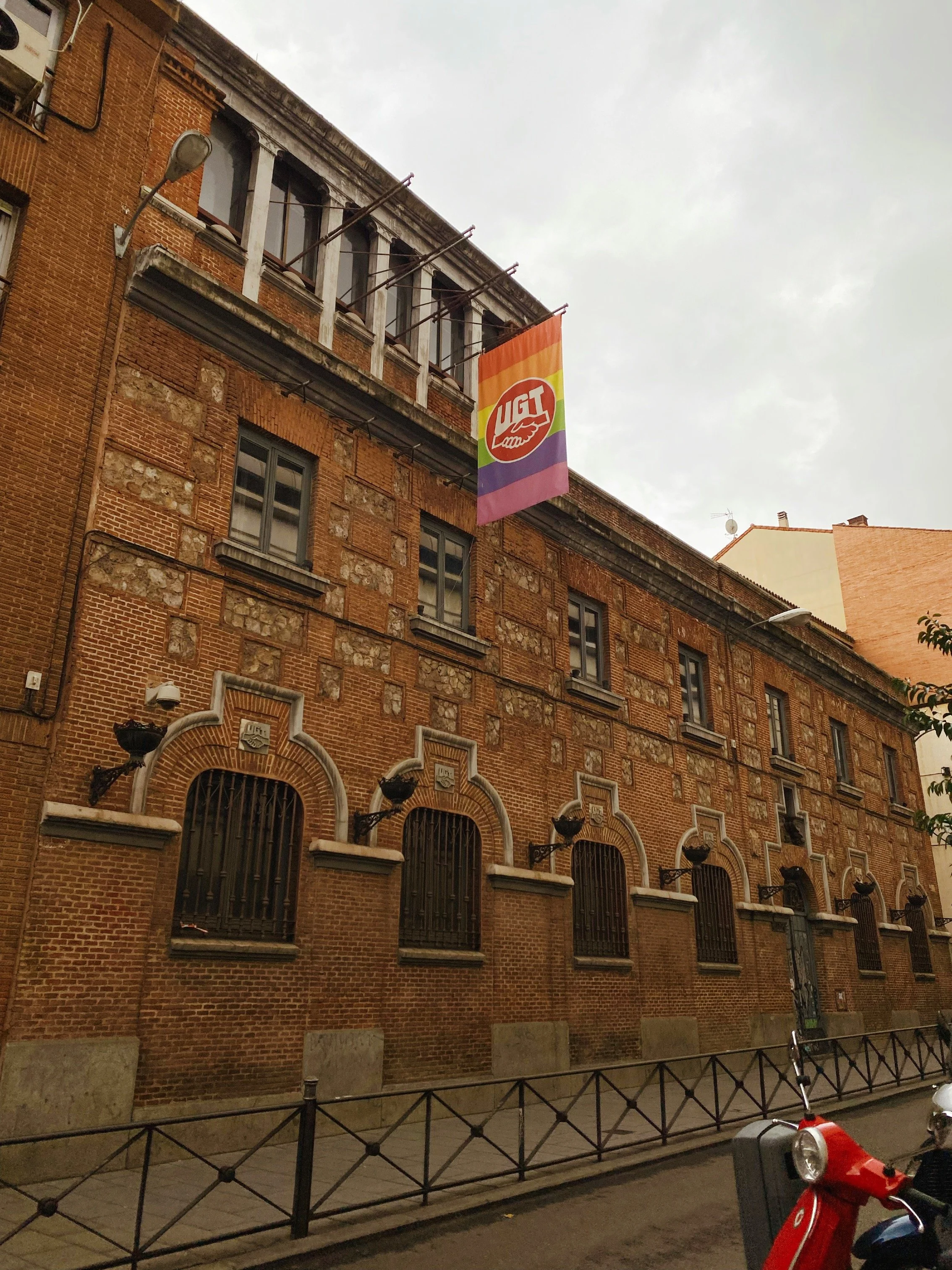Chueca: Looking Beyond Left Vs. Right
The first installment of this story introduced the Madrid neighborhood of Chueca and examined its complex dual identity as both a stronghold of “rainbow capitalism” and mainstream queer representation, and a site of fascist violence as indicated by recent homophobic attacks. A question was posed: Why wasn’t the apparent support of gay rights and gender justice on behalf of Spain’s powerful center-left political bloc enough to quell the increase in extremist ideologies?
In order to characterize Chueca more precisely as a site of political struggle, it’s helpful to understand just how diverse the Spanish political arena is. One must first recognize that Spaniards belong to an incredible range of political parties whose goals and values often defy the left-right political spectrum on which parties are typically placed.
“Is queer liberation possible in a capitalist, “pinkwashed” world? Does Chueca itself have liberatory potential?”
The country’s current Parliament is led by a coalition made up of the PSOE (Partido Socialista Obrero Español), the historic left-of-center party that Prime Minister Pedro Sánchez belongs to, and Podemos, a further-left party that has recently gained popularity among young Spaniards. Other key players are the PP (Partido Popular), which has long reigned over traditional conservative politics, right-of-center party Ciudadanos, and newly popular far-right party Vox.
The Ayuso Effect
At first it may seem logical to blame the conservative and historically less inclusive parties for encouraging or at least failing to prevent the September 21 Chueca attack and others like it. After all, the PP, which does not have a great track record of supporting queer justice movements, currently holds a majority in Madrid’s provincial government. What’s more, the Community of Madrid’s government is spearheaded by the volatile President Isabel Diaz Ayuso, a member of the PP whose desire to lead the party at the national level has been the center of months-long controversy in the Spanish political arena.
And that’s only the latest in a seemingly endless series of controversies involving Ayuso, a series which has come to look increasingly like a publicity strategy marked by brazen comments and a generally non-inclusive stance on social issues. Her growing popularity among the far-right not only has caused division within her own party, but also seems to be pushing centrist candidates from the right to adopt even more conservative stances to compete with Ayuso. Tensions continued to build as citizens took to the streets of Madrid in December to protest a bill proposed by Vox which would abolish a regional law protecting the rights of LGBTQ+ identifying people. Ayuso also announced that the PP would abstain from voting in Parliament.
PSOE Send Conflicting Signals
Perhaps it is just as telling and useful here to listen not to the noise made by those who aren’t necessarily expected to support liberatory movements, but rather to the silence put forth by those who are.
“Trans law now.” Found on a quieter, less commercial street in the center of the larger neighborhood of Justicia (within which Chueca is located). Spray painted on other walls on this same street were feminist symbols and the “Antifascismo bollero” tag that was mentioned in the first article in this series.
This past spring, months before the neo-Nazi march in Chueca, the PSOE made waves in left-wing politics when the party declined to back the draft of a new Ley Trans (Trans Law), which would allow Spaniards to change their sex on government-issued identification documents without first having to be diagnosed with gender dysphoria or going through hormonal treatment. The law articulates a crucial standpoint on behalf of the government, which is that individuals should have autonomy over their own gender identity.
“It seems as though the PSOE and the UGT wish to be representative of the Chueca that presents itself to tourists fresh off the Gran Vía Metro stop: clean walls, stylish clothing stores, hip cafes, advertisements featuring primarily cisgender White men, and just enough tasteful ‘gayness.’ ”
The party eventually turned around and unblocked the law from moving on to the Council of Ministers after expressing concerns about the consistency and stability of the identification changing process. But the PSOE’s original decision drew strong criticism, especially from its own feminist party members and participants in June’s Pride Week who warned PSOE to “stay out” of Pride.
The criticism did not subside once the party changed its mind, as many were quick to point out the timing of the decision that fell just mere days before Pride Week. It is also worth noting that the PSOE’s Young Socialists of Madrid Center is located in Chueca. Also in the neighborhood is a chapter of UGT (Unión General de Trabajadores, the so-called “brother union” of PSOE) in a building that is currently inactive and being rented out for use as a hotel.
Performing Acceptance
It seems that the criticism of PSOE surrounding the Ley Trans is more than warranted, considering that the party is already intertwined with such an influential neighborhood that has historically been associated with acceptance. Additionally, the party’s subsequent decision to back the law right before Pride Week produces the impression that the PSOE was primarily concerned with its maintaining its public image as a progressive and tolerant party during an event where issues of sex and gender would be brought to the forefront.
It seems as though the PSOE and the UGT wish to be representative of the Chueca that presents itself to tourists fresh off the Gran Vía Metro stop: clean walls, stylish clothing stores, hip cafes, advertisements featuring primarily cisgender White men, and just enough tasteful “gayness.”
This image of Chueca is reminiscent of a kind of queerness that has come to be more mainstream in recent years, which is the kind of queer that focuses primarily on that which does not challenge too fiercely our dominant expectations of sex and gender. This is a performative acceptance of queerness that generates profit for CEOs and votes for family-friendly, left-leaning political parties.
And so, this begs the question: Is queer liberation possible in a capitalist, “pinkwashed” world? Does Chueca itself have liberatory potential?
In addition to exploring these questions, the next two installments of this story will dive into the distinct political ideologies that have a presence in Chueca. These ideologies have been demonstrated by the discourse surrounding the anniversary of Franco’s death and Chueca’s radical and more subversive cultural roots, for example. We’ve gone surface level to acquaint ourselves with the sights and perspectives which present themselves there, and now we must peel back the layers of social reality like faded stickers on a back-alley garage door to uncover those factions which challenge the prevailing “mainstream” characterization of Chueca and all that it represents for Madrileños.
Note: All Spanish texts have been translated by the author. All photos are courtesy of the author unless otherwise noted.




